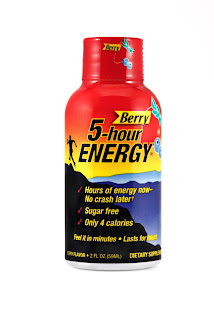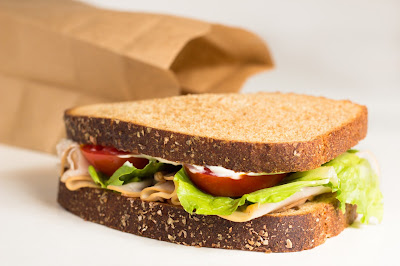 |
Stimulants are one way to get extra energy.
Image: 5 Hour Energy |
Life moves quickly these days, and it always seems like
there isn’t enough time in a day to get all the things done we needed or wanted
to. We’re tired and run down sometimes, and going to the grocery store seems to
scream a singular solution: energy bars, pills, drinks, and more. But do you
really know what you need versus what you’re getting?
Stimulants
basically rev up your metabolism. Stimulants include caffeine, guarana, yerba
mate, kola nut, green tea, capsaicin (red pepper), Asian ginseng, and Bitter
Orange (synephrine). These will help pick you up when you feel groggy or
sluggish in the middle of your day. Caffeine is one of the most potent and
effective stimulants. Many natural alternatives to caffeine still contain it or
something similar to it; most have the same or similar effects as caffeine.
They will give you a temporary boost in energy when you need it.
 |
Green tea contains caffeine, which can give you a boost.
Image: Shutterstock |
Substances that
affect energy metabolism are a different kind of “energy” supplement. This
category includes products like Coenzyme Q10, B vitamins, folic acid, thamine,
niacin, Creatine, carnitine, and amino acids. Rather than temporarily boosting
our metabolism, these products
change the
way our bodies process and convert nutrients to energy. Eating a healthy,
balanced diet will generally get you the same effects as taking these
supplements. Taking them on their own isn’t proven to increase energy except in
those who are deficient in those substances. In those who are deficient, taking
supplements could be of some benefit to your energy levels.
 |
Calories are, simply put, energy.
Image: Shutterstock |
Calories, much to
the disbelief of many, are not the
same thing as fat. Calories are, simply put, energy. Carbohydrates (including
sugars) are easy for our bodies to break down and absorb as energy, and that’s
generally what energy drinks, bars, and gels are full of. The problem is that
with too much sugar, our bodies’ glucose levels get spiked and we experience an
insulin surge—which can cause problems on its own. For athletes working their
bodies hard, carbs can give them the boost they need to refuel or recover. But
when you’re not exercising, that spike in glucose will likely quickly lead to a
crash, which will make you feel sleepy. And those calories you don’t burn will
get converted into fat.
 |
Eating a healthy diet will help give you an energy boost.
Image: Shutterstock |
When choosing whether or not to use a supplement, consider
whether or not you have a medical condition that would affect you adversely.
Some supplements could be dangerous for you. Remember that many of the “energy”
supplements haven’t been scientifically studied—or they may just be straight
sugar and carbs.
Consider whether or not you really need it before you try
it, too. If you’re regularly going on just a few hours of sleep, constantly
taking energy supplements could not only be less than optimally effective, it
could be dangerous. As I’m sure you’ve heard before, the best way to boost
energy is to get enough sleep and exercise and eat a healthy diet.















